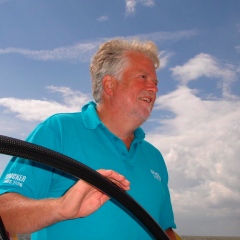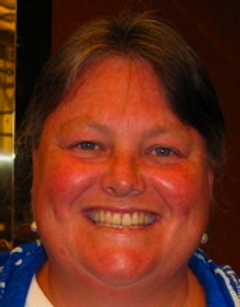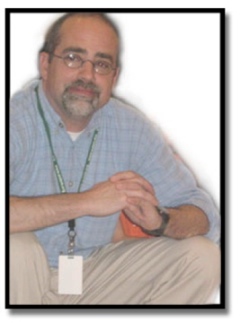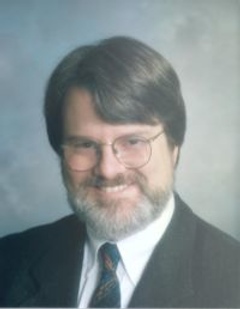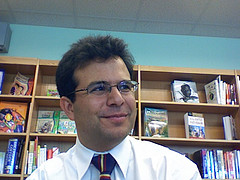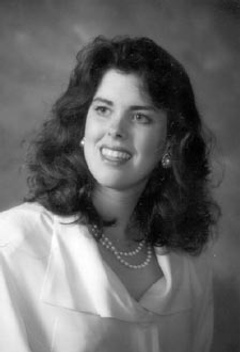We are pleased to announce the call for proposals for the third annual “K12 Online Conference” for educators around the world interested in the use of web 2.0 tools in classrooms and professional practice. This year’s conference is scheduled for October 20-24 and October 27-31 of 2008, and will include a pre-conference keynote during the week of October 13.
The conference theme for 2008 is “Amplifying Possibilities.” Participation in the conference (as in the past) is entirely free. Conference materials are published in English and available for worldwide distribution and use under a Creative Commons license. Some changes in the requirements for presentations are being made this year and are detailed below.
The deadline for proposal submission is June 23, 2008. Selected presentations will be announced at NECC 2008 in San Antonio, Texas, USA on July 2.
OVERVIEW: As in past years, K12 Online 2008 will feature four “conference strands,” two each week. Two presentations will be published in each strand each day, Monday through Friday, so four new presentations will be available each day over the course of the two weeks. Including the pre-conference keynote, a total of 41 presentations will be published. Each twenty minute (or less) presentation will be shared online in a downloadable format and released simultaneously via the conference blog (www.k12onlineconference.org,) the conference Twitter account, and the conference audio and video podcast channels. All presentations will be archived online for posterity. A total of 82 past presentations are currently available from K12 Online 2006 and K12 Online 2007. If you are planning to submit a proposal, please review archived presentations from past years to determine what you might offer that is new and builds on previous work. A variety of live events will also be planned during and following the weeks of the conference.
FOUR STRANDS:
Week 1
Strand A: Getting Started
Everything you wanted to know about getting started with web 2.0 technologies for learning but were afraid to ask. The presentations in this strand will focus on specific, free tools for newcomers. Whether you have one classroom computer or a laptop for every student, digital technologies can provide new opportunities to connect with other learners, create new and exciting knowledge products, and engage students in an expanded learning process beyond the traditional “boundaries of the bell.” Teachers first introduced to Web 2.0 tools are often unaware of the new possibilities for teaching and learning afforded by the Read/Write Web. Presentations in this strand will amplify and model what is possible in terms of pedagogy, student creation of content, and collaboration. Practical classroom implementation ideas will be emphasized. Presentations will focus more on the ways new tools can be used to engage students in learning, rather than focusing exclusively on how specific tools are used. If you’ve ever felt like everyone else knows more than you about teaching with technology and you need help getting started, this is the strand for you.
Strand B: Kicking It Up a Notch
You’ve been using blogs, wikis and other technologies for awhile but perhaps haven’t seen them transform your classroom and the learning environment for your students in the ways you think they can. This strand amplifies ways new technologies can be used to transform classroom and personal learning. Rather than merely replicating traditional, analog-based learning tasks, how can digital technologies permit teacher-leaders to “infomate” learning to add greater interactivity, personal differentiation, and multi-modal exploration of curriculum topics? Fresh new approaches to using Web 2.0 tools for learning and authentic assessment will be highlighted. Presentations will explore innovative ways Web 2.0 tools can be blended together to help students create, collaborate, and share the knowledge safely on the global stage of the Internet. Maybe it’s time to share your insights and experiences with your teaching community. Join these sessions to gain insights on amplifying the possibilities of learning in your classroom and/or your professional practice.
Week 2
Strand A: Prove it
Although some teachers are excited to “amplify possibilities” using computer technologies, Web 2.0 tools, and 21st Century learning strategies in their classrooms, how do we know if these innovative instructional strategies are really working? Since information technologies and emerging brain research continue to rapidly evolve and change, it is challenging as well as vital to find current, meaningful research to undergird the learning initiatives we are using in our classrooms. What are “best practices” for teaching and learning with the new participatory media? This strand will share research results from the field that support students in using knowledge to communicate, collaborate, analyze, create, innovate, build community and solve problems. In addition, successful methods for developing and/or delivery of action research projects or research-based instruction in today’s digital world will be explored. In some cases, participants may be invited to participate in ongoing or beginning research on Web 2.0 tool use, constructivist pedagogy, or other 21st Century research issues. Educational research about emerging professional development strategies, contemporary learning theory, systemic school reform, and other current themes of educational change are also appropriate for inclusion in this strand. Help us to examine such research questions as:
- What does research in learning science, instructional design, informal learning, and other fields tell us about today’s learner and their success?
- What design features must teachers incorporate into their instructional activities to support meaningful learning?
- What is the role of assessment in today’s changing classroom? How should assessment be structured to meaningfully assess student achievement in the context of the modern classroom?
Strand B: Leading the Change
Innovative approaches to teaching and learning using web 2.0 tools are often utilized by a limited number of “early adopter” teachers in our schools. This strand seeks to amplify ways educators in a variety of contexts are serving as constructive catalysts for broad-based pedagogic change using Web 2.0 technologies as well as student-centered, project-based approaches to learning. Presentations in this strand will both showcase successful strategies as well as amplify critical issues which must be addressed for innovative learning methods to be adopted by teachers, librarians, and administrators on a more widespread basis. These issues may include (but are not limited to) issues of copyright, fair use and intellectual property, Internet content filtering, student privacy and safety issues, administrator expectations for teacher utilization of Web 2.0 tools, pilot initiatives utilizing key Web 2.0 technologies in different content areas, and innovative ways students and teachers are providing just-in-time support as well as formal learning opportunities for each other focusing on Web 2.0 tools. Successful approaches for both large and small schools, in rural as well as urban settings, will be included. This strand will explore and amplify a menu of practical ideas for educators in diverse contexts who want to continue amplifying possibilities in our schools.
CALL FOR PROPOSALS: This call encourages all educators, both experienced and novice with respect to Web 2.0 learning tools, to submit proposals to present at this conference via this link. Take this opportunity to share your successes, strategies, and tips in “amplifying the possibilities” of web 2.0 powered learning in one of the four conference strands.
The deadline for proposal submissions is July 11, 2008 at midnight GMT. (This is an extension of the originally announced deadline of June 23rd.) You will be contacted in late July regarding your proposal’s status. The conveners reserve to right to reposition a presentation in another strand if they believe it is best placed elsewhere. As in past years, conveners will utilize blind review committees to evaluate all submissions.Presentations for K12Online08 must conform to the following requirements:
- Presentations must be a single media file of twenty minutes or less in length.
- Presentations must be submitted in a downloadable and convertable file format (mp3, mov, WMV, FLV, m4a, or m4v.) Presenters wanting to use an alternative format should contact their respective strand convener in advance.
- Presentations are due two weeks prior to the week the relevant strand begins. (Week 1 presentations are due Monday, October 6, Week 2 presentations are due Monday, October 13.)
- Presentations must be submitted only one time and on time. Early submissions are welcomed! Repeat submissions (with changes and additional edits) will not be accepted. Presenters should proof carefully before submitting!
- All presentations will be shared under a Creative Commons Attribution-NonCommercial-ShareAlike 3.0 Unported license.
The following are optional but encouraged presentation elements:
- Prior to September 13th, presenters are invited to submit a “teaser” (maximum video or audio file length: 3 minutes) about their presentation. This can be any type of online artifact and does not have to be downloadable. Examples may include videos, animations, posters, audio interviews, etc.
- In addition to marketing the presentation, teasers can be designed to encourage and solicit community input related to the presentation topic in advance of the presentation submission deadline.
- View teaser examples from 2007 at http://k12online07.wikispaces.com/Teasers
- Supplementary materials supporting presentations are welcomed. These can be wikis with supporting material links, linked examples of student projects, school district exemplary initiatives, social bookmarking collections, and/or other related content.
- Follow-up projects and/or live interaction opportunities for conference presentations which further amplify the possiblities of the presentation topic may be included. (This can include sharing and building of content prior to, during and after the conference.)
As you draft your proposal, you may wish to consider the presentation topics listed below which were suggested in the comments on the K-12 Online Conference Blog:
- Special needs education
- Creative Commons, Intellectual Property, Copyright and Fair Use
- Student voices
- Community involvement
- Games in education
- Specific ideas, tips, mini lessons centered on pedagogical use of web 2.0 tools
- Overcoming institutional inertia and resistance
- Aligning Web 2.0 and other projects to national standards
- Getting your message across
- How web 2.0 can assist those with disabilities
- ePortfolios
- Classroom 2.0 activities at the elementary level
- Teacher/peer collaboration
- Authentic assessment
- Overcoming content filtering issues
- Navigating “open web” versus “closed web” publishing of student work
Prospective presenters are reminded that the audience of the K12 Online Conference is global in nature and diverse in their educational context. For this reason presentations and presentation materials which address issues from a variety of perspectives are welcomed.EVALUATIONAcceptance decisions will be made based on RELEVANCE, SIGNIFICANCE, ORIGINALITY, QUALITY, and CLARITY. Borrowing from the COSL 2008 call for proposals:
A submission is RELEVANT when
- it directly addresses the conference and strand themes
A submission is SIGNIFICANT when
- it raises and discusses issues important to improving the effectiveness and/or sustainability of 21st Century teaching and learning efforts, and
- its contents can be broadly (globally) disseminated and understood
A submission is ORIGINAL when
- it addresses a new problem or one that hasn’t been studied in depth,
- it has a novel combination of existing research results which promise new insights, and / or
- it provides a perspective on problems different from those explored before
A submission is of HIGH QUALITY when
- existing literature is drawn upon, and / or
- claims are supported by sufficient data, and / or
- an appropriate methodology is selected and properly implemented, and / or
- limitations are described honestly
A submission is CLEARLY WRITTEN when
- it is organized effectively, and / or
- the English is clear and unambiguous, and / or
- it follows standard conventions of punctuation, mechanics, and citation, and / or
- the readability is good
KEYNOTES: The first presentation in each strand will kick off with a keynote by a well known educator who is distinguished and knowledgeable in the context of their strand. Keynoters will be announced shortly.
CONVENERS:
- Darren Kuropatwa is currently Department Head of Mathematics at Daniel Collegiate Institute in Winnipeg, Manitoba, Canada. He is known internationally for his ability to weave the use of online social tools meaningfully and concretely into his pedagogical practice. Darren’s professional blog is called A Difference (http://adifference.blogspot.com). He will convene Getting Started.
- Dean Shareski is a Digital Learning Consultant for Prairie South School Division in Saskatchewan, Canada. Dean is an advocate for the use of social media in the classroom. To that end he works with teachers and students in exploring ways to make learning relevant, authentic and engaging. He also is a part time sessional lecturer for the University of Regina. He is celebrating his 20th year as an educator. Dean blogs at (http://ideasandthoughts.org). Dean will convene Kicking It Up A Notch.
- Sheryl Nusbaum-Beach, a 20-year educator, has been a classroom teacher, charter school principal, district administrator, and digital learning consultant. She currently serves as an adjunct faculty member teaching preservice teachers at The College of William and Mary (Virginia, USA), where she is in the dissertation phase of completing her doctorate in educational planning, policy and leadership. As the cofounder of the Powerful Learning Practice Network she helps schools and teachers from around the world use community as a powerful tool for systemic change. You can find out more on her website at www.21stcenturycollaborative.com. She will convene Prove It.
- Wesley Fryer is an educator, author, digital storyteller and change agent. He summarizes his ongoing work with educators and students in social media environments with the statement, “I’m here for the learning revolution.” His blog, “Moving at the Speed of Creativity” was selected as the 2006 “Best Learning Theory Blog” by eSchoolnews and Discovery Education. Social media sites to which Wes contributes are listed on http://claimid.com/wfryer. Wes will convene Leading the Change.
QUESTIONS?If you have any questions about any part of this call for proposals, please contact one of us:
- Darren Kuropatwa: dkuropatwa {at} gmail {dot} com
- Dean Shareski: shareski{at} gmail{dot} com
- Sheryl Nusbaum-Beach: snbeach {at} cox {dot} net
- Wesley Fryer: wesfryer {at} pobox {dot} com
Please duplicate this post and distribute it far and wide across the blogosphere. Feel free to republish it on your own blog (actually, we’d really like people to do that 😉 ) or link back to this post (published simultaneously on all our blogs).

